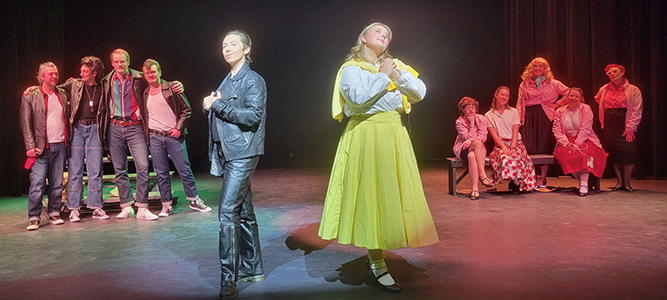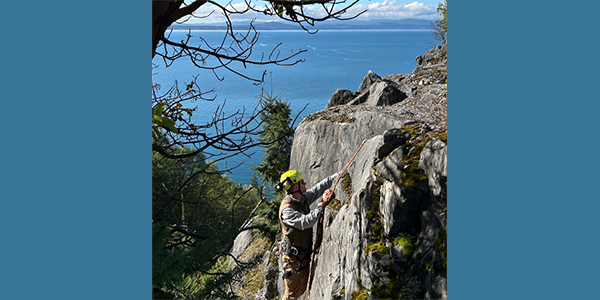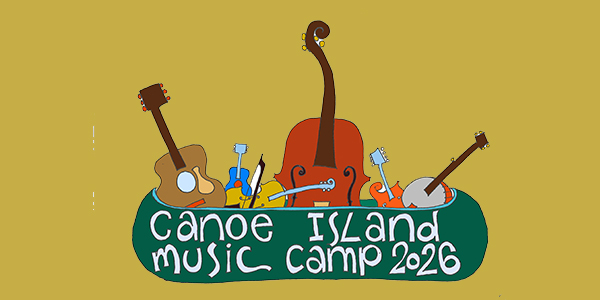||| FROM BEA VON TOBEL |||
Even though I’ve been officially retired for 10 years, my mind continues to ponder life on this island of residence, and has prompted several observation/questions. Some of them may be way out in left field, but because we’ve lived on Orcas for more than 30 years, it’s been my privilege to see things from several perspectives.
A while back, I read Men Without Work, by Nicholas Eberstadt. That’s where the current thoughts come from, but as someone who spent a long time in education (teaching, counseling, some adult ed), in the common blue-collar workforce, as a ‘business executive’ in a local taxing distict, an elected official, and a volunteer with a few island nonprofits, I can say that I’ve seen lots of the economy from various viewpoints.
To start off, let me say that somewhere along the line, male children are suffering. Whether it is from a lack of two-parent homes, economic circumstances, life experiences, later maturation which seems to make school irrelevant in its present constitution, I don’t know. What I do know is that according to the aforementioned book, a substantial percentage of males between the ages of 26-54 are NILFs (not in the labor force). Some have incarceration records which make finding employment difficult, some have sincere disabilities (physical/mental), some have given up the long haul of finding employment, and some exist within the largesse of government programs, families who support them, or even women who are breadwinners, etc.
This island, as frequently mentioned in the releases from various organizations, is generous in its support of those who are in need. There’s housing (OPAL, etc), food (OI Food Bank), services (Orcas Family Resource Center, Orcas Senior Center), and several other groups who regularly provide their generosity in various formats. And the OICF funds many community needs through its 100+ 501(c)(3)nonprofits.
So here’s an observation: with the US budget currently under intense scrutiny, and with the possibility that some of the government largesse being targeted for reduction/elimination, the island groups currently providing help may/will be stretched and perhaps broken by their mission to help.
From a current outside observer, here’s a question or two:
—what is the makeup of those who are being helped? Are they predominantly legally-constituted families; are they single-parent families; are they unmarried males (the predominant figure from the book); are they employed; are they looking for work; do disabilities prevent work; are they NILF by choice . . .
—the invasion of privacy in ascertaining this information is foremost, so gathering any information will be difficult no matter how it is accomplished, so is the gathering of information even possible . . . and would it even give an accurate picture of the situation . . .
I am not a statistician, and would not know from whom to gather such information so as to protect the integrity of those from whom it was gathered, but I am inherently curious about those who partake of this community’s largesse, and greatly curious whether they contribute back to the community at large, or just exist as takers . . .
Well, there it is in a nutshell. Don’t know whether it’s of interest to anyone out there who might be as curious as I am, but it’s been a conundrum of interest!
**If you are reading theOrcasonian for free, thank your fellow islanders. If you would like to support theOrcasonian CLICK HERE to set your modestly-priced, voluntary subscription. Otherwise, no worries; we’re happy to share with you.**








I subscribe to the Orcasonian as a former 18-year resident of the islands (1970s and 80s), and these comments reflect my love for them and their inhabitants, and my 20+ years of involvement in the issues of housing, homelessness and poverty elsewhere (Olympia). Whenever I read comments like this, I always wait for the other shoe to drop: “we need to help people, BUT.. but.” are they NILF by choice . . .” But “Are they predominantly legally-constituted families…” I’d love to know the current definition of the latter, and I have yet to meet anyone who is “on the street” by choice. Even the young adults out there who seem to glorify in camping wild have deeper stories of neglect, abuse, and lack of good role models that make their choices anything but voluntary. And when did supporting each other become “largesse?” Is community only for those who “earn it?’
I’m not convinced that curiosity is a legitimate reason to seek this kind of information. Assembly of this data necessitates judgments that only those involved in the triage process, if then, can appropriately make. What is the point of judging (whatever the process) takers and servers, when neither is the point of life, and every single one of us in different ways do both.
Thank you, Tim. I share your sentiments about this opinion. I can’t help but feel the author is totally detached from the community to have any confusion about this. I live on San Juan and know a father of two that works his butt off and has no choice but to live in his van because there are no rentals available for a price that he could afford and be able to pay child support and feed himself. It seems the author has never heard about the huge portion of our island communities that work 2 or 3 jobs to survive here.
It seems to me that Von Tobel is asking some good questions. There are perhaps many more to ask. But, Bill Apple brings up the legal issue of personal privacy. Privacy vs real help may be an issue.
The good and generous people of Orcas are certainly standing up and providing help for people on trouble. This is very necessary. But are these problems symptoms or the diseases?
In many place, Portland for example, positive change seems not to be happening. Things are getting worse for people in trouble. (I lived in Portland for many years). Other cities are in the same boat.
While we must treat the symptoms; homeless, drugs, crime, unemployable, lawlessness etc. It may be time to ask how and why did this happen. There are as many answers as people involved.
Once we know the why’s, we can and should begin attacking the real diseases.
I have known Bea for going on 30 years and to question her integrity and point of view without any direct knowledge is both foolish and offensive. Please refrain from ad hominem attacks on this forum.
Being homeless is a choice. Period. This has got to be the MOST expensive county in the state to live in. If one is homeless in SJC, they should move to a place LESS expensive. It’s all a choice. Mental health problems, drug addiction, whatever…it’s still a choice and we have a thing called “personal responsibility”.
My comment wasn’t directed at the legal aspect of inquiry beyond curiosity (to which the writer is certainly entitled from anyone willing to respond), but rather whether inquiries of this nature are within social norms unless made a condition of receiving aid. More difficult is distinguishing voluntary NLFs from involuntary NLFs something some might be inclined to do with uncertain accuracy. So we have to decide whether the distinction matters enough to refrain from giving at all, regardless of support from government sources. Being the people we are in the community we are in, we will do what we can.
But getting to the law, a propos whether those seeking aid are legally constituted families, I want to alert all and sundry that Washington does not have “common law marriage,” with the result that the death of one partner can cause legal confusion and expense as additional burdens for the grieving partner.
My curiosity about all this came as a result of reading the mentioned book. Then I talked to some island residents who, like my wife and I, contribute both time and treasure back to the community.
And as one who has held numerous jobs on the island, my Venn diagram has a lot of overlaps.
Next month, I will begin another season at the hatchery, where last year we could only find 4 people to work, and one of those was the lady from DFW who was in charge! Luckily several other women and a couple of men came from time to time, but most of them were there as a result of their own volunteerism.
And if you read this small book, you will find out some other very interesting information as well. And the author has asked other economists to critique his work, which is interesting in itself. I guess I would dare you to read it without having some questions arise about the future of things like sustaining our country, the future look of work, education, religion, families, volunteerism and the influence of life in front of a screen of your choosing.
Whatever the homeless count data show, one should consider that most publicly-funded social safety net programs prioritize women of child bearing age and their young children— helping them to stay housed. Adult men, who are not eligible for those supports, are more likely to be the folks counted as homeless (or without housing). If single adult men show up more frequently in the numbers served by nonprofits and philanthropy, bear in mind that such charitable efforts are a safety net for those who have already fallen through or outside the public safety net… People (men, women and children) make choices within the choices they have.
The question about the future of work is a good one, Bea.
The need for services will never go away. In fact, as societies transition out of production, they move into service economies. The “helping services” such as feeding the poor and housing the unhoused will continue to be necessary. And here we meet the spectrum of human behavior- helper and helpee. Not all of us can feel righteous in the face of another’s continuing bad judgment, even where that bad judgment is founded on predatory intent. There are two practical reasons for helping a “NFL by choice”: first, there are or may be other, innocents if you will, relying on them, and second, the wilful NFL may be an example of a mental condition outside the norms of our society. This could include artists, artisans and writers who are looked at as societal outsiders and whose products may be intensely personal but also subject to intense market fads within a society that when all is said and done, is not strictly rational, nor are its members.
Lifestyle is a choice…. livelyhood not always so. Over time our leaders have, and they continue to make choices ensuring that we go from one form of land use (fishing, logging) until we deplete that resource, and then move on to the next (tourism and tourism related growth) until we’ve depleted that. As a result of this system, how many people out there (by circumstance) work jobs that they hate? Or, how many people out there work 2 or 3 underpaying jobs in order to make things work? How many single parents are there out there left with the decision to either to work (1, 2, or 3 jobs) that won’t pay enough for child care, or to not work at all? How many are there who’ve suffered medical issues, and can no longer work in their field of choice, (or can no longer work at all)? I know people in our community who qualify for all of the above.
Yes, there are those that represent both extremes… some cheat the system, while there are others who, also taking advantage of the system, participate at a level that betters themselves, but worsens things for others. Some take advantage of the opportunities given to them, and make their personal choices regardless of how it adds to the problem of income inequality, either locally, or in America today, (policies that artificially over-inflate home prices, or over-charging customers at the repair shop, or operating vacation rentals would all be examples of this), all of which exacerbate income inequality in our communities, and none of which represents the best long-term interests of our community.
Who was it that once uttered the shallow comment, “How come it’s always the people who don’t have anything that are always complaining?” Let me turn that around and ask, “Why is it that those of you who’ve made lifestyle choices that make things worse for those around you choose to not understand that there are those who have not had the options and opportunities that you have, OR EVEN IF THEY DID… instead made their lifestyle choices based on ethics to not engage in that which is harmful to their communities?”
This is becoming an interesting discussion, despite or maybe because of, the somewhat uncomfortable nature of it. I’m not altogether sure this is what Bea’s initial opinion piece was actually focused on, but a discussion of whether we (as an island community) are okay providing support and sustenance to people that may or may not “deserve” it, is clearly needed.
Obviously we currently choose to help regardless of perceived need, which seems to be a safe response ethically and morally. Meaning, since we do not, and maybe cannot, know the circumstances and situation of every person seeking assistance, it is better to err on the side of generosity. As long as we have enough for everyone requesting assistance, why not take care of everyone that asks?
On the other hand, how many of the people receiving public or private assistance on Orcas are actually “community” members? What do we mean when we say “community”? Is a person living out of a backpack that takes a ferry ride out to Orcas to hang out with friends a member of our community? Is a person that bought a summer home and visits it a few weeks per year a member of the community? Is a person that took a job at Rosario for the summer a member of the community? Is there some definition of “community member” that we can agree upon? And what do we mean when we say “islander”? If you were born here then obviously you are a native islander but what about the VAST majority of us who have chosen to live here as adults? Am I instantly an “islander” as soon as my foot hits Mama Orcas? Or after a year? A decade? Many decades?
I don’t know if there are any answers to those questions, but I am sure that a meal and a dry place to sleep is the least we can do for anyone that asks. That doesn’t mean I think we should provide a free house for every person that says they can’t afford market rate rent. (Not that we could even if we wanted to.) We all make choices in our lives and choosing to teach yoga and play the guitar rather than do something less enjoyable but more remunerative is a choice. That is not to imply that we all get the same economic opportunities presented to us! But we DO all make choices (including whether to live on a very expensive island) and experiencing the consequences of our choices is how we learn to make better choices. Perhaps instead of just offering a bag of groceries or a rent voucher we should be thinking about how we can help people learn to make healthy life decisions?
Articles written in this manner are a mindset. Austerity for poor people and socialism for the wealthy does nothing to attribute itself towards the root problems regarding homelessness in America today. People, by and large, are not poor because they are homeless… they are homeless because they are poor. People are often not in control of life’s circumstances, and regardless of this our society too much of the time tends to treat the homeless amongst us in the same manner as we treat displaced immigrants waiting at our borders. Neither policy approach attends itself to the root problems of this dilemma.
I like it how I read it in one of the local social posts a year or two ago, when somebody was bitching about all the homeless people. The lady commenting said, “When you see people living in a tent, they’re homeless… leave them the f… alone!”